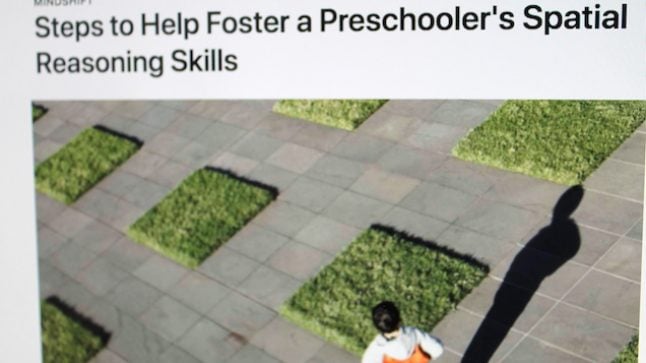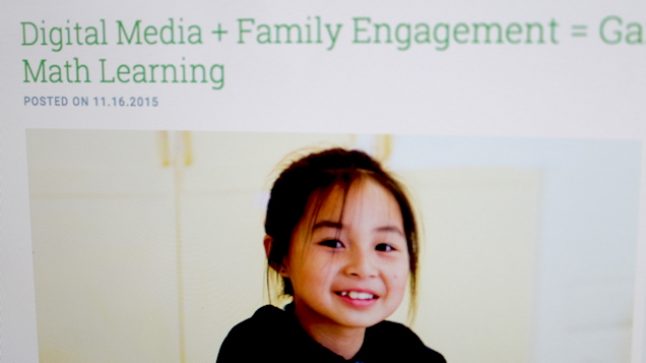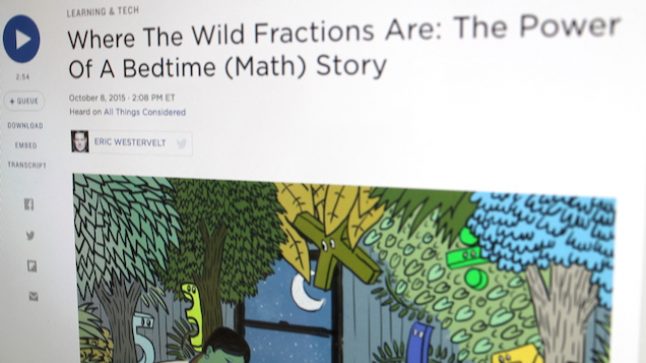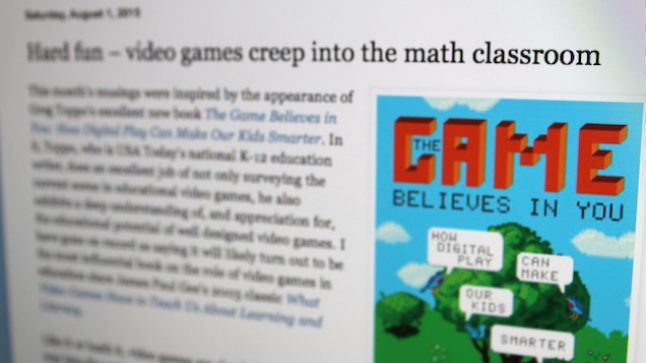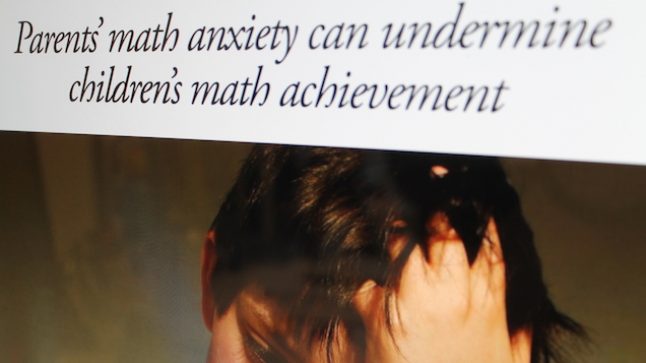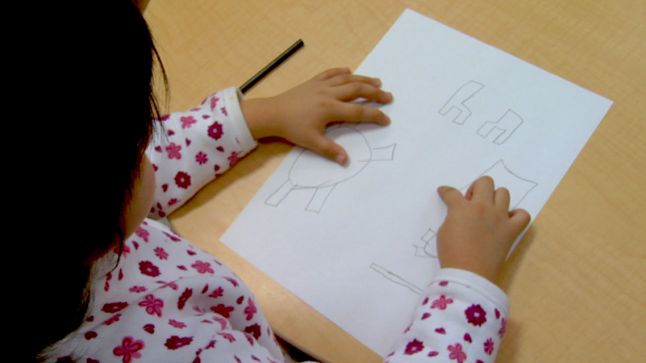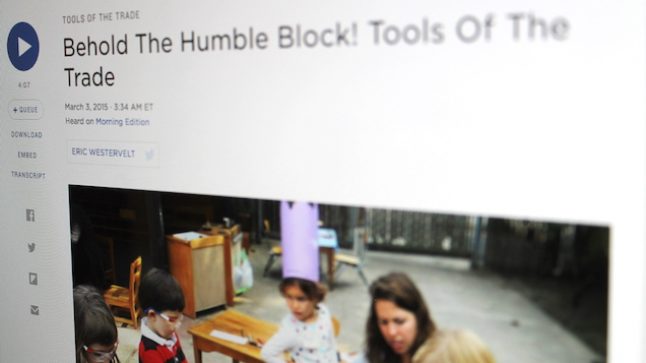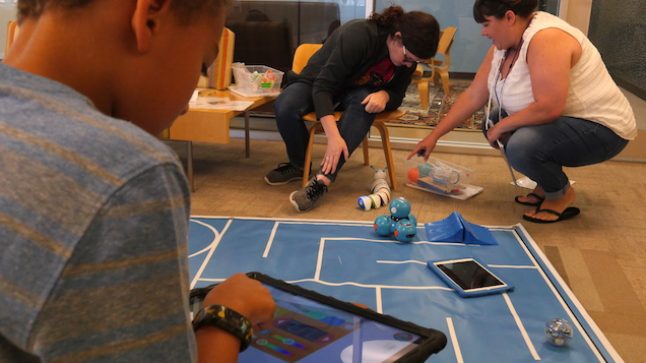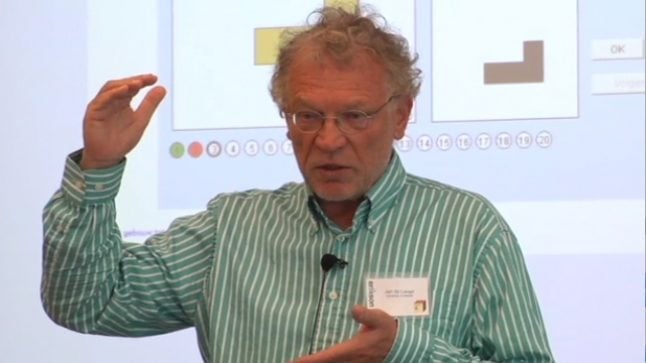Tagged as: Technology
Series: About Early Math
Spatial Reasoning Skills Predict Later STEM Success
January 6, 2016
Children with strong spatial reasoning skills are more likely to succeed in STEM fields later on in life.
- Topic: Spatial Relationships
- Age/Grade Level: Pre-K, Kindergarten
- Tags Mapping, Technology, Nature, Books
Series: Hear from the Experts January 5, 2016
Study Suggests Apps for Kids Can Aid Math Learning
Apps for kids can provide a unique opportunity for social engagement, allowing children to collaborate with their parents or peers while learning.
- Topic: Number Operations, Shape
- Age/Grade Level: Pre-K
- Tags Technology, Apps
Series: Hear from the Experts October 12, 2015
Math App with Daily Problems Benefits Children and Parents
Research from the University of Chicago published in Science journal suggests that the math app Bedtime Math can help bolster math confidence for both children and parents. Bedtime Math takes the routine of a nightly…
- Age/Grade Level: Infants, Toddlers, Pre-K, Kindergarten, 1st Grade, 2nd Grade, 3rd Grade
- Tags Technology, Math Anxiety
Series: About Early Math August 24, 2015
High Score: Using Math Video Games in the Classroom
Mathematician Keith Devlin reflects on the use of video games in the classroom in his review of Greg Toppo's The Game Believes in You: How Digital Play Can Make Our Kids Smarter.
- Age/Grade Level: Pre-K, Kindergarten, 1st Grade, 2nd Grade, 3rd Grade
- Tags Technology
Series: About Early Math August 13, 2015
Children’s Math Anxiety May Stem from Parents
A new study from the University of Chicago suggests that parents can easily transfer their math anxiety to their children.
- Age/Grade Level: 1st Grade, 2nd Grade, 3rd Grade
- Tags Math Anxiety, Technology
Series: About Early Math May 13, 2015
Math Opportunities Hidden in Geocache App
Geocaching is an activity that uses the GPS technology on your mobile device to allow for some real-life treasure hunting. It can mathematize otherwise ordinary situations, as it allows children to interact with real-world maps.
- Topic: Spatial Relationships
- Age/Grade Level: Pre-K, Kindergarten, 1st Grade, 2nd Grade, 3rd Grade
- Tags Mapping, Technology, Nature
Series: About Early Math March 4, 2015
Blocks: Low-Tech Toys with High Learning Potential
This article from NPR's ongoing education blog discusses the strength of a familiar low-tech toy: the block. Even amid a technological revolution in teaching, which is bringing tablets, apps, and smartboards into more and more…
- Topic: Number Operations, Spatial Relationships
- Age/Grade Level: Pre-K, Kindergarten
- Tags Technology, Play, Blocks
Series: About Early Math May 20, 2014
6 Resources to Help You Assess Early Math Apps
Where can educators and parents go to learn more about smart choices in choosing math apps and math-related technology for young children? Here is a round-up of resources that can help think through the options.
- Age/Grade Level: Pre-K, Kindergarten, 1st Grade, 2nd Grade, 3rd Grade
- Tags Technology, Play, Apps
Series: About Early Math February 7, 2014
All About Math Apps
Collaborative Instructor Dr. Mary Hynes-Berry discusses math apps on the Fred Rogers Center blog.
- Age/Grade Level: Pre-K, Kindergarten, 1st Grade, 2nd Grade, 3rd Grade
- Tags Technology, Apps
Series: Hear from the Experts September 19, 2013
Online Math Games with Jan de Lange
Jan de Lange walks through a few educational math games available online. With degrees of difficulty bridging from Pre-K through 8th grade, these games extend the idea of learning trajectories.
- Topic: Spatial Relationships
- Age/Grade Level: Adult Learners, Pre-K, Kindergarten, 1st Grade, 2nd Grade, 3rd Grade
- Tags Technology, Play, Jan de Lange
Do the math.
Free videos.
Free newsletter packed with ideas.
Free professional learning modules.
